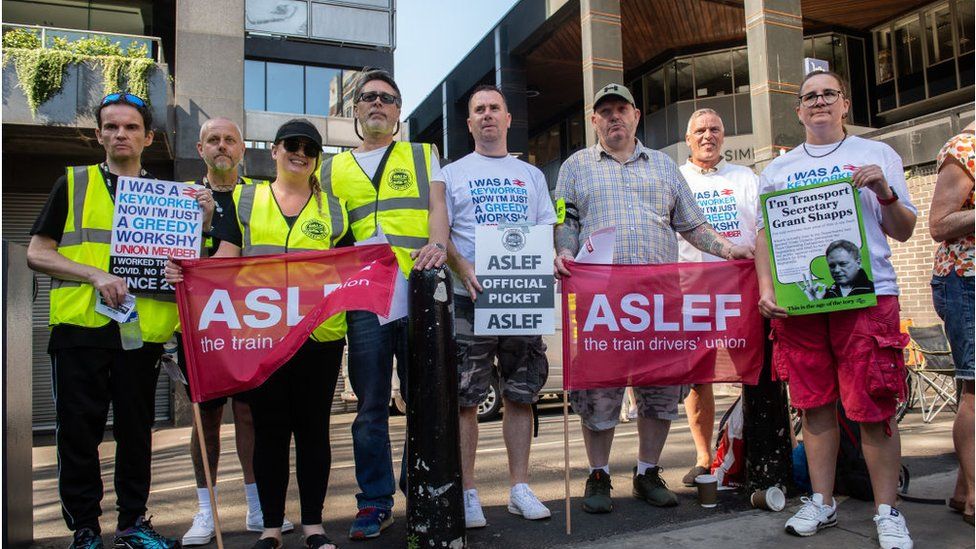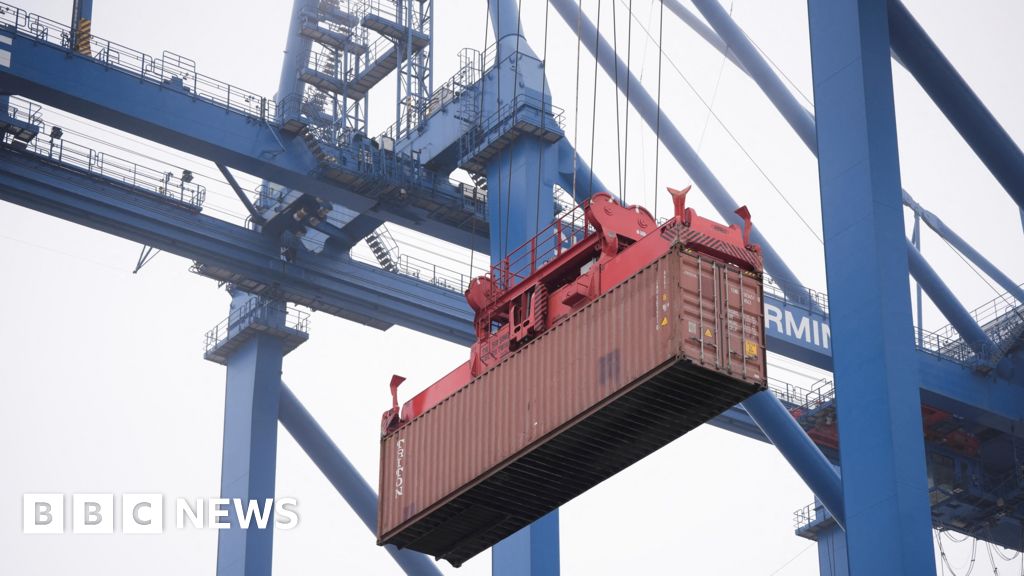ARTICLE AD BOX
 Image source, Getty Images
Image source, Getty Images
Striking train drivers picket Euston station in August
Train drivers at 12 rail companies will strike again as part of an ongoing a dispute over pay, union Aslef has said.
Staff will walk out on 15 September, after talks broke down over pay, with the union seeking wages to keep pace with the rising cost of living.
Union general secretary Mick Whelan said workers didn't want to go on strike but said the train companies had forced their hand.
The strike is the latest of several in the rail industry in recent months.
Drivers have previously walked out on 30 July and 13 August, causing disruption and cancellations to train services across the country.
Train drivers at the following companies are set to strike:
- Avanti West Coast
- Chiltern Railways
- CrossCountry
- Greater Anglia
- Great Western Railway
- Hull Trains
- LNER
- London Overground
- Northern Trains
- Southeastern
- TransPennine Express
- West Midlands Trains
The Rail Delivery Group, which represents train operators, has previously said it wants to give its workers a pay rise but added "to fund it unions must recognise that as an industry that has lost 20% of its revenue, we can either adapt or decline".
Mr Whelan said when taking into account rising prices, the companies "want train drivers to take a real terms pay cut - to work just as hard this year as last, but for 10% less".
"We want the companies - which are making big profits, and paying their chief executives enormous salaries and bonuses - to make a proper pay offer to help our members keep up with the increase in the cost of living," he said.
For 2021, the median salary for train and tram drivers was £59,189 according to the Office for National Statistics.
Aslef says it represents 96% of train drivers - most of the remaining 4% are not union members at all.
The cost of living is rising at the fastest rate for 40 years, with inflation at 10.1% and forecast to hit 13% before the end of the year.
The increase has led to many unions calling for pay rises to help workers cope. Several industries, including the railways, airports and the Royal Mail, have voted to go strike.
But the government and the Bank of England have warned against employers handing out big increases in salaries over fears of a 1970s-style "inflationary spiral", where firms hike wages and then pass the cost on to customers via higher prices.

 2 years ago
26
2 years ago
26








 English (US)
English (US)